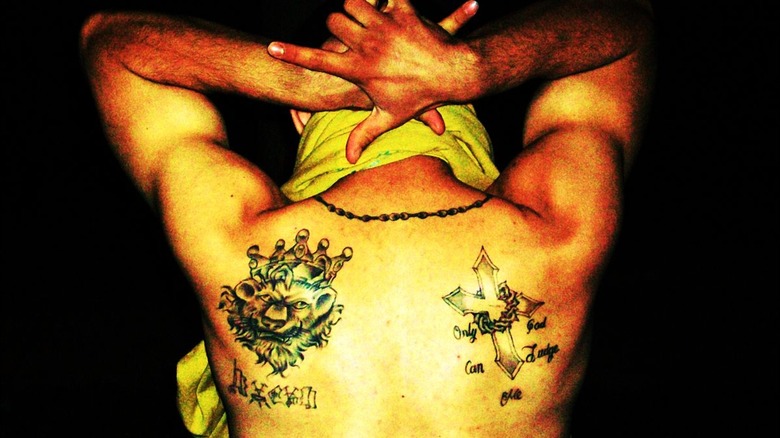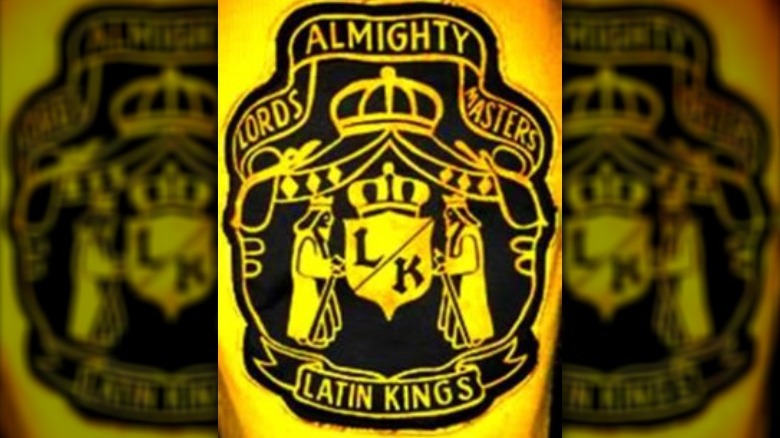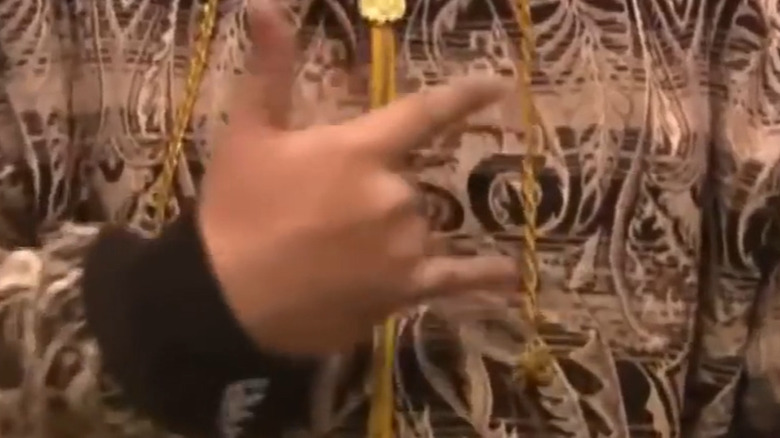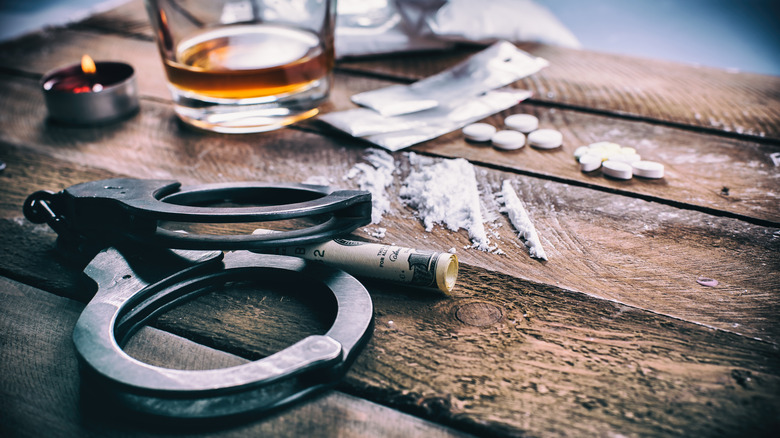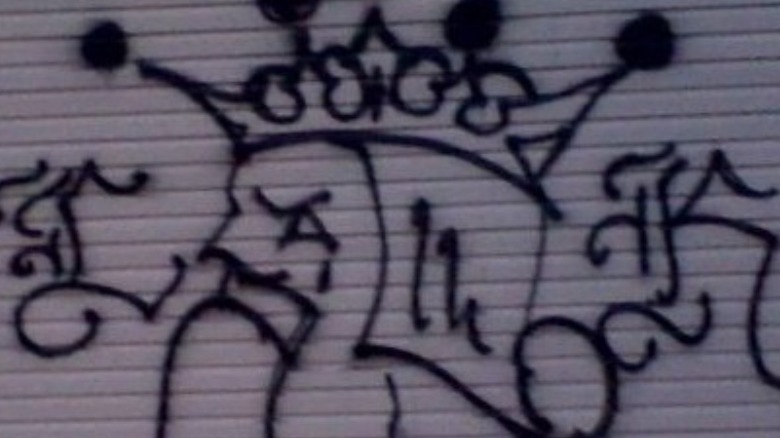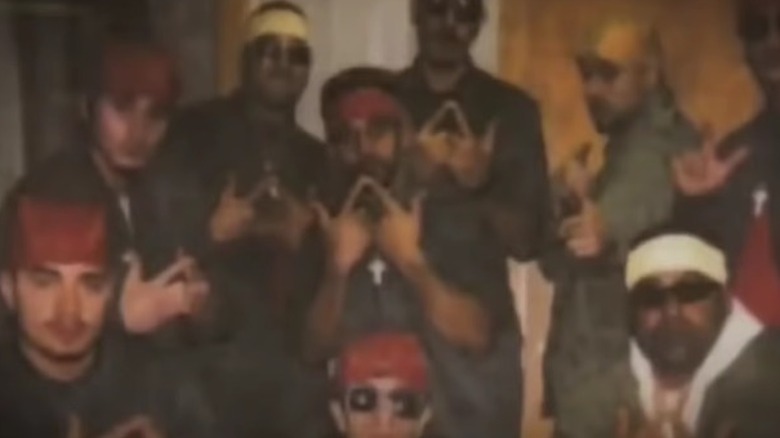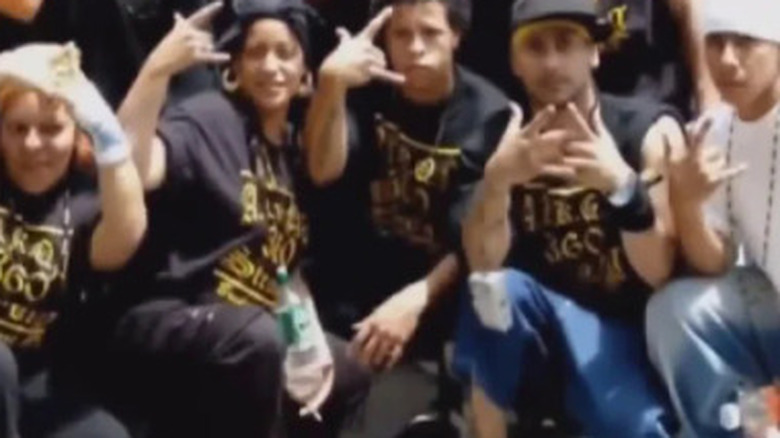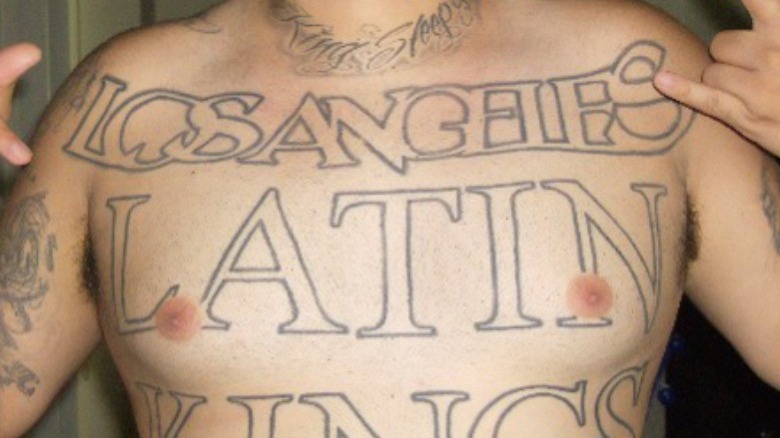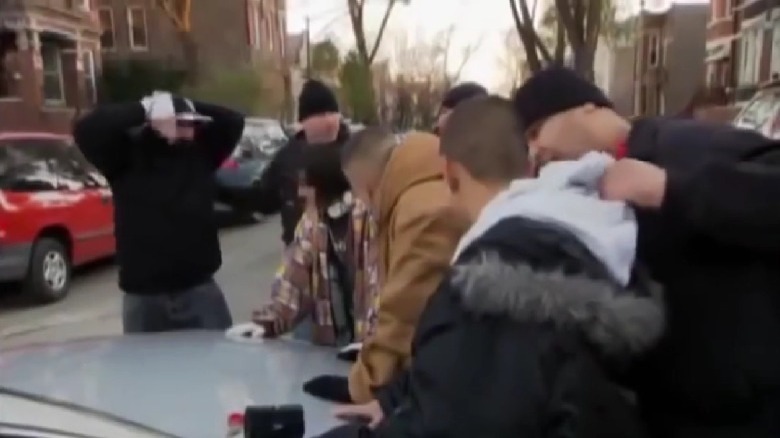Rules Latin Kings Have To Follow
According to the Canadian Journal of Sociology, the Latin Kings group developed between 1940-1960 in Chicago, Illinois, as a community to help lessen the impact of immigration. The initial network helped Latino immigrants to integrate into a new life, assisting with employment, finding housing, and offering practical advice but also protecting against racial violence and police repression. When the influx of hard drugs hit Chicago in the mid-'60s, the Latin Kings seized the opportunity and evolved into one of the most infamous, controlled, and dogmatic street gangs in America, even spreading to some European countries.
A big part of the contemporary organization structure was created on the basis of the Chicago "Motherland" chapter in 1986, when Luis Felipe (King Blood) established the "Bloodline" chapter in New York, positioning himself as the leader. Initially the Bloodline chapter served as a protection mechanism for Latin people inside the prison system due to Felipe's own incarceration. By the late '90s, the NYC branch became a "legitimate, highly formal, and relatively transparent organization."
According to Department of Justice District of Massachusetts, the gang relies heavily on drug distribution. Its main motives are gaining power and protection from other gangs. It operates in great secrecy and strongly promotes violent culture. In their four year investigation, the department confirmed drug trafficking, murders of more than 10 victims, and violent crimes such as "robbery, stabbings and witness intimidation."
Here are the Rules Latin Kings have to follow.
There's a hierarchy to follow
According to Wes Daily, detective and head of the East Coast Gang Investigators Association, "when you compare them to other street gangs like the Bloods and the Crips, none can compare to the organization of the Kings" (via The Eagle-Tribune). The whole Almighty Latin King and Queen Nation (ALKQN) gang is divided on national, state, and local levels, and each state is led by a state representative, monitoring these smaller divisions (via San Antonio Express-News). This includes a strict hierarchy with office holders relying on promotion and demotion, governing by "elected organizational bodies such as the Crown Council and Supreme Team," and "a formal membership directory with full biographical records of members," as explained by the Canadian Journal of Sociology.
As per Gang Enforcement, even the hierarchy of the group is explained through symbolic positions, including the five-point crown. From the "thinker" to "advisor" to protective positions, each "crown" represents a leadership position in the group's organizational structure that members look to for rules and regulations, a per the Sun Sentinel.
Violence is a must
According to the Chicago Tribune, rules demand that members are "willing to engage in violence," even if that means beating up their fellow members. The Morning Call does note that the Latin Kings emphasize respect among members. Infighting isn't really allowed, and only high-ranking members can approve retaliatory action between feuding parties. Such things like failing to share drug earnings with each other or disrespecting a higher-ranking member can be brought before a gang court, an internal organization consisting of elected members. And, often very violent punishments are meted out.
As per San Antonio Express-News, prescribed punishment for violating rules include the "2 for 45" rule, where other group members beat a person for 45 seconds. If one shares internal information, one could get a "full body fledge," an act of standing against the wall, while other members hit for two minutes and 30 seconds.
In some cases, a monetary fine is enough, but often the members are "reprimanded, beaten or killed," due to their motto that "a King never tastes death but once." Those who severely break the rules end up on "beat-down on sight" and "terminate on sight" lists — meaning the hit list.
Latin Kings must live by the Manifesto
According to the Canadian Journal of Sociology, Latin Kings gang members must follow the King's Manifesto that outlines their purpose and ideology, called Kingism, which offers principles in which to live by, with prayers, stages of enlightenment and various rules and procedures. The journal also notes that the manifesto instructs members to "forgo criminality" and strive towards "a revolution that will bring freedom to [their] people."
When a gang member accepts Kingsim and thus the manifesto, it's almost like they are being confirmed into a religion, promising to uphold truth, justice, peace, and freedom, as per the New York Police Department.
The NYPD also notes that members must read and fully understand any literature provided by the executive crown members. If there is any confusion, they must find a fellow member who can clarify it. And their literature is considered pretty sacred. Texts must be always kept away from anything that could harm the material, such as liquids or flammable materials, and everything must be filed and organized correctly.
'Once a king always a king'
Most gang members feel that their memberships as a lifetime subscription, without any option for cancellation.
An anonymous member of the Latin Kings offered a detailed account of membership in the Latin Kings organization to Prison Writers. According to "King Angelico," when a member is accepted to the group, they promise to be a Latin King for life, according "The Oath (Bloodline)" they must follow. The oath goes on to say that members stand behind one another for better or worse.
King Angelico gained the status of an "ancient king," meaning that even though he is not active in group activities anymore, the gang will "always ride for him and with him." Besides that, if he goes to prison and doesn't agree with how the gang is running inside, he can take them to task and have the freedom to get "the castle" in order.
While members are presumed lifetime members, they still are susceptible to being screened, as King Angelico notes in his account. No member is beyond reproach, and if they don't pass the test, they could potentially be given a T.O.S. or "Terminate On Sight" order, which allows any active Latin King to kill him on the spot.
The Latin Kings must follow the rituals
The Latin Kings gang has a variety of rituals that members must participate in, from celebrating specific holidays to various gang signs they use. According to "The Almighty Latin King and Queen Nation," by David C. Brotherton and Luis Barrios, their usage of gestures, prayers, and other means of communication and identification are "very precise and highly ritualistic." From kissing a crown before the supreme leader to how they cross their arms is all regulated, the authors note. They even have specific gestures for when they are in trouble, such as when a member is put on probation, he or she must "throw up a probation crown and say amor" (via the NYPD).
The gang also celebrates specific holidays, such as January 6 or King's Holy Day, when Latin Kings are required to fast in honor of brothers and sisters who passed away. The first week of March is known as King's Week or The Latin Kings Week of the Sun, which is the gang's annual anniversary celebration, and the last week in October is celebrated as the "Week of Blood" (via Gang Enforcement).
Meetings have their own rules
The gang has a strict way of how meetings are conducted. At the beginning, the family prayer is recited followed by members throwing up the "Amor de rey" sign (via the NYPD).
According to the NYPD, no one is allowed to speak at meetings without a permission. If this rule is broken, the member is first warned by having to do "50 push-ups or stand in push-up position for 10 or 20 minutes." The second warning is a one-minute of beating in front of everyone. There is no third warning, as per rule book. Furthermore, meetings are obligatory, and a member has to have a justified reason to be absent. Skipping meetings can lead to a violation, probation, and physical punishment. When a member is absent for the fourth time without a valid excuse, they are discharged from the organization. Everyone present at the meetings must pay the membership fee of $7 per meeting. A fee is also charged if a member comes in late — $1 for every 15 minutes of delay. Members are also not allowed to attend a meeting under the influence of anything that could disrupt its process.
Only certain drugs are allowed
Despite the fact that the Latin Kings are heavily involved in the drug business across the country (even international), there are strict rules when it comes to drug usage and abuse, but also selling.
According to The Morning Call, an important part of their constitution states that members can sell crack but can't use it. Also, they can only smoke weed during certain hours. PCP or angel dust is also out of question, as per The Chicago Tribune. The constitution also prohibits other "unlawful" narcotics to be consumed or sold, like animal tranquilizer, glue, LSD or acid, heroin, and downers (via the Canadian Journal of Sociology).
As written by former gang member Reymundo Sanchez in "My Bloody Life," it is often hard to not fall into addiction, being surrounded by the drug business most of the time. He describes an event from his past, when he overdosed on cocaine and almost died, which put him in violation: "They didn't care about me endangering my life with a coke habit. No, they were upset because I had broken the rules by becoming a junkie."
All rival graffiti has to be removed
Graffiti serves as an important part of communication between Latin King gang members, as well as rivals. According to the New York Police Department (NYPD), their graffiti helps mark their territory. However, at odds with such practices is the gang's constitutional rule that vandalism such as graffiti is "strongly discouraged" — likely due to their claims as a legitimate organization, as noted by the NYPD.
In 2019, as reported by Michigan Live, a substantial rise in graffiti messages was noticed after a local gang leader was taken to prison in Holland, Michigan. Most of the new graffiti targeted the Holland police, threatening police officers but also other gangs. Graffiti included "HPDK," an acronym for "Holland Police Department Killer" and a pitchfork turned upside down. They were signed "ADR," which could stand for "Amor del rey," a well-known greeting of the group. Other graffiti, targeting rival groups of Crips with Attitude and Maniac Latin Disciples, were found as well.
Another rule more clearly states that all rival graffiti has to be removed, as per the Chicago Tribune. This is often done by writing over or adding to it, notes the Muscatine Journal.
One must be properly initiated
There are several ways to become a member of the group, but a new member must go through a proper initiation before gaining full membership.
As explained by Reymundo Sanchez in his book, "My Bloody Life," a new potential member has to prove himself to the gang first before he can be considered for going through the process of initiation. And while the Latin King's "initiation packet" espouses qualifications like morals, character, and cultural heritage as qualifications for prospective members (via the NYPD), entrance into the gang is often based on less altruistic notions. According to DNAInfo Chicago, in 2013, Esteban Sotelo was ordered to shoot a rival gang member as part of his initiation process. In Sanchez's case, he already collaborated with the Latin Kings in their retaliation against the rival Gaylords, thus already proving himself, as he recounts in his book.
After the proving phase, the real initiation takes place, with gang members taking their turns beating the initiate. "I would have to take an initiation violation that consisted of two chosen Kings beating me for three minutes. Unlike the head-to-toe violation, they would not be allowed to hit me in the face, groin, or basically anywhere where I could be seriously hurt. This was supposed to prove my toughness," details Sanchez.
After the initiation beating, Sanchez was given the notebook with rules, Nation Literature, and was told which prayer he had to memorize until the next meeting. "Failure to do so would result in disciplinary action," he said.
Homosexuality and adultery are strictly forbidden
According to the Morning Call, there are strict rules that demand that a member must not "lust for pleasure" towards another member's spouse. The NYPD further notes that "members should never become involved in a physical relationship with another member's spouse." "The Almighty Latin King and Queen Nation," by David C. Brotherton and Luis Barrios, notes that rule exceptions are made for those who incarcerated, "when both parties mutually agree to start new lives." However, in their research, the writers also found a double standard, with female members getting expelled for alleged adultery while other male members weren't punished.
The gang also discriminates on the basis of sexual orientation through strict rules about homosexuality: "Any member that participates in homosexual activities will be suspended from the Nation pending an investigation by the Chapter Crown Council," as per the NYPD.
In a chilling case from the Bronx, New York, the group brutally attacked a teenager in the process of gang recruitment because he was gay, reports ABC News. Several gang members were charged with assault and unlawful imprisonment, among other things. After the arrest, members of the group claimed it was actually the gang's leader who threatened them to engage in such activity.
In another case in Mississippi, a teenager was killed. As reported by The Washington Post, a member of the Latin Kings was sentenced for murdering a young transgender woman. As witnesses told the court, the Latin King member knew she was transgender as he dated her for quite a while, but because this was a serious violation of the gang's rules, he claimed that "Well, it was my life or his."
Latin King members must practice social responsibility
According to "The Almighty Latin King and Queen Nation," by David C. Brotherton and Luis Barrios, the gang promotes social responsibility. Members must set a good example to other gang members, as well as Latino community in general. As the authors detail, this means that they must be employed or at least looking for work, they must attend a school, should show family responsibility, and be interested in Latino cultural history.
But, these rules are not set in stone, and the level of their seriousness depends on the maturity level of a member. The ideology of Kingism has three different stages of development for an individual, which means that the rules are more loose for members at the lower level, and violations of them aren't taken as seriously as in the case of more established members.
According to the NYPD gang, the rules also prescribe continuous improvement of one's communication skills, with the intention to educate future gang members. Members are specifically required to know their personal cultural history and family lineage. They must also maintain a positive outlook and "keep all things in their proper perspective."
Rules for prison
As reported by Chris Markus for The Eagle-Tribune, the King's Constitution consists of rules and exact practical advice for behavior in special circumstances, including how to act in prison. Members are instructed on the precise amount of exercise they should be doing while locked up — "running two miles in 20 minutes, performing 500 push-ups and doing 50 sit-ups in two minutes." They are also forbidden to have "friendly conversations with correctional staff" and are told to essentially keep to themselves and observe quiet time.
Keeping to themselves while incarcerated comes with a general distrust of the law. As per the NYPD, one of their rules dictates that no member should even think of relying on a law enforcement organizations as a credible source of information. And another prohibits police cooperation.
